afterLoad (456.16KB) (8.23ms)
afterInitialise (1.27MB) (25.97ms)
afterRoute (840.45KB) (14.18ms)
beforeRenderComponent com_tags (20.75KB) (340μs)
afterRenderComponent com_tags (1.59MB) (96.51ms)
afterDispatch (28.09KB) (3.22ms)
beforeRenderRawModule mod_articles_category (READ MORE...) (439.86KB) (14.2ms)
Before Access::preloadComponents (all components) (50.9KB) (1.47ms)
After Access::preloadComponents (all components) (103.05KB) (637μs)
Before Access::getAssetRules (id:8 name:com_content) (840B) (16μs)
After Access::getAssetRules (id:8 name:com_content) (7.05KB) (41μs)
afterRenderRawModule mod_articles_category (READ MORE...) (5.93KB) (93.03ms)
beforeRenderRawModule mod_custom (BOOST YOUR IMMUNE DEFENSE) (6.45KB) (25μs)
afterRenderRawModule mod_custom (BOOST YOUR IMMUNE DEFENSE) (3.8KB) (1.25ms)
beforeRenderRawModule mod_tags_popular (Search) (2.36KB) (19μs)
afterRenderRawModule mod_tags_popular (Search) (19.84KB) (94.38ms)
beforeRenderRawModule mod_custom (Get additionel and more detailed knowledge ) (816B) (26μs)
afterRenderRawModule mod_custom (Get additionel and more detailed knowledge ) (1.55KB) (44μs)
beforeRenderRawModule mod_custom (Overview of vitamins, minerals, and essential fatty acids) (768B) (11μs)
afterRenderRawModule mod_custom (Overview of vitamins, minerals, and essential fatty acids) (960B) (23μs)
beforeRenderRawModule mod_custom (Q10 goes by many names) (608B) (9μs)
afterRenderRawModule mod_custom (Q10 goes by many names) (928B) (19μs)
beforeRenderRawModule mod_custom (Check this before you buy a Q10 product) (752B) (9μs)
afterRenderRawModule mod_custom (Check this before you buy a Q10 product) (944B) (18μs)
beforeRenderRawModule mod_custom (Are you taking supplements) (736B) (9μs)
afterRenderRawModule mod_custom (Are you taking supplements) (1.03KB) (18μs)
beforeRenderRawModule mod_custom (Weight loss that works) (736B) (9μs)
afterRenderRawModule mod_custom (Weight loss that works) (1.03KB) (20μs)
beforeRenderRawModule mod_custom (Antiaging) (720B) (12μs)
afterRenderRawModule mod_custom (Antiaging) (912B) (25μs)
beforeRenderRawModule mod_menu (Are you getting enough vitamins and minerals?) (2.5KB) (15μs)
afterRenderRawModule mod_menu (Are you getting enough vitamins and minerals?) (22.39KB) (613μs)
beforeRenderRawModule mod_menu (The key to increased well-being) (736B) (18μs)
afterRenderRawModule mod_menu (The key to increased well-being) (17.83KB) (247μs)
beforeRenderRawModule mod_menu (Did you know.....) (720B) (17μs)
afterRenderRawModule mod_menu (Did you know.....) (25.52KB) (724μs)
beforeRenderRawModule mod_custom (Useful Links) (1.06KB) (22μs)
afterRenderRawModule mod_custom (Useful Links) (1.02KB) (39μs)
beforeRenderRawModule mod_custom (Chronic fatigue tied Alan to his bed but Q10 capsules saved him:) (244.28KB) (3.86ms)
afterRenderRawModule mod_custom (Chronic fatigue tied Alan to his bed but Q10 capsules saved him:) (1.06KB) (41μs)
beforeRenderModule mod_custom (Chronic fatigue tied Alan to his bed but Q10 capsules saved him:) (768B) (4μs)
afterRenderModule mod_custom (Chronic fatigue tied Alan to his bed but Q10 capsules saved him:) (1.3KB) (54μs)
beforeRenderRawModule mod_custom (Cholesterol-lowering without side effects:) (368B) (13μs)
afterRenderRawModule mod_custom (Cholesterol-lowering without side effects:) (1.06KB) (22μs)
beforeRenderModule mod_custom (Cholesterol-lowering without side effects:) (752B) (2μs)
afterRenderModule mod_custom (Cholesterol-lowering without side effects:) (1.28KB) (30μs)
beforeRenderModule mod_articles_category (READ MORE...) (20.82KB) (872μs)
afterRenderModule mod_articles_category (READ MORE...) (1.25KB) (64μs)
beforeRenderModule mod_custom (BOOST YOUR IMMUNE DEFENSE) (6.81KB) (15μs)
afterRenderModule mod_custom (BOOST YOUR IMMUNE DEFENSE) (1.28KB) (33μs)
beforeRenderModule mod_tags_popular (Search) (1.98KB) (17μs)
afterRenderModule mod_tags_popular (Search) (1.27KB) (30μs)
beforeRenderModule mod_custom (Get additionel and more detailed knowledge ) (1.17KB) (13μs)
afterRenderModule mod_custom (Get additionel and more detailed knowledge ) (1.3KB) (27μs)
beforeRenderModule mod_custom (Overview of vitamins, minerals, and essential fatty acids) (384B) (13μs)
afterRenderModule mod_custom (Overview of vitamins, minerals, and essential fatty acids) (1.31KB) (27μs)
beforeRenderModule mod_custom (Q10 goes by many names) (208B) (11μs)
afterRenderModule mod_custom (Q10 goes by many names) (1.27KB) (21μs)
beforeRenderModule mod_custom (Check this before you buy a Q10 product) (352B) (9μs)
afterRenderModule mod_custom (Check this before you buy a Q10 product) (1.28KB) (20μs)
beforeRenderModule mod_custom (Are you taking supplements) (352B) (8μs)
afterRenderModule mod_custom (Are you taking supplements) (1.28KB) (21μs)
beforeRenderModule mod_custom (Weight loss that works) (336B) (12μs)
afterRenderModule mod_custom (Weight loss that works) (1.27KB) (188μs)
beforeRenderModule mod_custom (Antiaging) (336B) (1.03ms)
afterRenderModule mod_custom (Antiaging) (3.77KB) (61μs)
beforeRenderModule mod_menu (Are you getting enough vitamins and minerals?) (2.13KB) (22μs)
afterRenderModule mod_menu (Are you getting enough vitamins and minerals?) (1.3KB) (27μs)
beforeRenderModule mod_menu (The key to increased well-being) (352B) (12μs)
afterRenderModule mod_menu (The key to increased well-being) (1.28KB) (23μs)
beforeRenderModule mod_menu (Did you know.....) (336B) (11μs)
afterRenderModule mod_menu (Did you know.....) (1.27KB) (21μs)
beforeRenderModule mod_custom (Useful Links) (1.44KB) (9μs)
afterRenderModule mod_custom (Useful Links) (1.27KB) (21μs)
beforeRenderRawModule mod_menu (Main Menu - English) (29.14KB) (2.08ms)
afterRenderRawModule mod_menu (Main Menu - English) (192.45KB) (3.8ms)
beforeRenderModule mod_menu (Main Menu - English) (720B) (5μs)
afterRenderModule mod_menu (Main Menu - English) (4.86KB) (60μs)
beforeRenderRawModule mod_languages (Sprogskift) (3.94KB) (19μs)
afterRenderRawModule mod_languages (Sprogskift) (22.52KB) (2.55ms)
beforeRenderModule mod_languages (Sprogskift) (720B) (5μs)
afterRenderModule mod_languages (Sprogskift) (5.31KB) (22μs)
beforeRenderRawModule mod_finder () (6.34KB) (11μs)
afterRenderRawModule mod_finder () (128.59KB) (2.67ms)
beforeRenderModule mod_finder () (704B) (5μs)
afterRenderModule mod_finder () (3.29KB) (33μs)
beforeRenderRawModule mod_custom () (6.62KB) (138μs)
afterRenderRawModule mod_custom () (22.64KB) (1.96ms)
beforeRenderModule mod_custom () (704B) (6μs)
afterRenderModule mod_custom () (1.23KB) (53μs)
beforeRenderRawModule mod_menu (Main Menu - English) (5.07KB) (103μs)
afterRenderRawModule mod_menu (Main Menu - English) (6.3KB) (966μs)
beforeRenderModule mod_menu (Main Menu - English) (720B) (5μs)
afterRenderModule mod_menu (Main Menu - English) (1.25KB) (48μs)
beforeRenderRawModule mod_languages (Sprogskift Mobil) (912B) (18μs)
afterRenderRawModule mod_languages (Sprogskift Mobil) (3.89KB) (717μs)
beforeRenderModule mod_languages (Sprogskift Mobil) (720B) (4μs)
afterRenderModule mod_languages (Sprogskift Mobil) (1.27KB) (32μs)
beforeRenderRawModule mod_finder () (2.3KB) (10μs)
afterRenderRawModule mod_finder () (6.29KB) (567μs)
beforeRenderModule mod_finder () (704B) (4μs)
afterRenderModule mod_finder () (1.23KB) (64μs)
beforeRenderRawModule mod_custom () (8.66KB) (190μs)
afterRenderRawModule mod_custom () (904B) (134μs)
beforeRenderModule mod_custom () (704B) (3μs)
afterRenderModule mod_custom () (2.43KB) (25μs)
beforeRenderRawModule mod_custom () (688B) (86μs)
afterRenderRawModule mod_custom () (896B) (94μs)
beforeRenderModule mod_custom () (704B) (3μs)
afterRenderModule mod_custom () (2.71KB) (22μs)
afterRender (286.83KB) (4.9ms)
| 1 x afterRenderComponent com_tags (1.59MB) (25.03%) | 96.51ms |
| 1 x afterRenderRawModule mod_tags_popular (Search) (19.84KB) (24.48%) | 94.38ms |
| 1 x afterRenderRawModule mod_articles_category (READ MORE...) (5.93KB) (24.13%) | 93.03ms |
| 1 x afterInitialise (1.27MB) (6.74%) | 25.97ms |
| 1 x beforeRenderRawModule mod_articles_category (READ MORE...) (439.86KB) (3.68%) | 14.20ms |
| 1 x afterRoute (840.45KB) (3.68%) | 14.18ms |
| 1 x afterLoad (456.16KB) (2.13%) | 8.23ms |
| 1 x afterRender (286.83KB) (1.27%) | 4.90ms |
| 1 x beforeRenderRawModule mod_custom (Chronic fatigue tied Alan to his bed but Q10 capsules saved him:) (244.28KB) (1%) | 3.86ms |
| 1 x afterRenderRawModule mod_menu (Main Menu - English) (192.45KB) (0.98%) | 3.80ms |
| 1 x afterDispatch (28.09KB) (0.84%) | 3.22ms |
| 1 x afterRenderRawModule mod_finder () (128.59KB) (0.69%) | 2.67ms |
| 1 x afterRenderRawModule mod_languages (Sprogskift) (22.52KB) (0.66%) | 2.55ms |
| 1 x beforeRenderRawModule mod_menu (Main Menu - English) (29.14KB) (0.54%) | 2.08ms |
| 1 x afterRenderRawModule mod_custom () (22.64KB) (0.51%) | 1.96ms |
| 1 x Before Access::preloadComponents (all components) (50.9KB) (0.38%) | 1.47ms |
| 1 x afterRenderRawModule mod_custom (BOOST YOUR IMMUNE DEFENSE) (3.8KB) (0.33%) | 1.25ms |
| 1 x beforeRenderModule mod_custom (Antiaging) (336B) (0.27%) | 1.03ms |
| 1 x afterRenderRawModule mod_menu (Main Menu - English) (6.3KB) (0.25%) | 966μs |
| 1 x beforeRenderModule mod_articles_category (READ MORE...) (20.82KB) (0.23%) | 872μs |
| 1 x afterRenderRawModule mod_menu (Did you know.....) (25.52KB) (0.19%) | 724μs |
| 1 x afterRenderRawModule mod_languages (Sprogskift Mobil) (3.89KB) (0.19%) | 717μs |
| 1 x After Access::preloadComponents (all components) (103.05KB) (0.17%) | 637μs |
| 1 x afterRenderRawModule mod_menu (Are you getting enough vitamins and minerals?) (22.39KB) (0.16%) | 613μs |
| 1 x afterRenderRawModule mod_finder () (6.29KB) (0.15%) | 567μs |
| 1 x beforeRenderComponent com_tags (20.75KB) (0.09%) | 340μs |
| 1 x afterRenderRawModule mod_menu (The key to increased well-being) (17.83KB) (0.06%) | 247μs |
| 1 x beforeRenderRawModule mod_custom () (8.66KB) (0.05%) | 190μs |
| 1 x afterRenderModule mod_custom (Weight loss that works) (1.27KB) (0.05%) | 188μs |
| 1 x beforeRenderRawModule mod_custom () (6.62KB) (0.04%) | 138μs |
| 1 x afterRenderRawModule mod_custom () (904B) (0.03%) | 134μs |
| 1 x beforeRenderRawModule mod_menu (Main Menu - English) (5.07KB) (0.03%) | 103μs |
| 1 x afterRenderRawModule mod_custom () (896B) (0.02%) | 94μs |
| 1 x beforeRenderRawModule mod_custom () (688B) (0.02%) | 86μs |
| 1 x afterRenderModule mod_articles_category (READ MORE...) (1.25KB) (0.02%) | 64μs |
| 1 x afterRenderModule mod_finder () (1.23KB) (0.02%) | 64μs |
| 1 x afterRenderModule mod_custom (Antiaging) (3.77KB) (0.02%) | 61μs |
| 1 x afterRenderModule mod_menu (Main Menu - English) (4.86KB) (0.02%) | 60μs |
| 1 x afterRenderModule mod_custom (Chronic fatigue tied Alan to his bed but Q10 capsules saved him:) (1.3KB) (0.01%) | 54μs |
| 1 x afterRenderModule mod_custom () (1.23KB) (0.01%) | 53μs |
| 1 x afterRenderModule mod_menu (Main Menu - English) (1.25KB) (0.01%) | 48μs |
| 1 x afterRenderRawModule mod_custom (Get additionel and more detailed knowledge ) (1.55KB) (0.01%) | 44μs |
| 1 x After Access::getAssetRules (id:8 name:com_content) (7.05KB) (0.01%) | 41μs |
| 1 x afterRenderRawModule mod_custom (Chronic fatigue tied Alan to his bed but Q10 capsules saved him:) (1.06KB) (0.01%) | 41μs |
| 1 x afterRenderRawModule mod_custom (Useful Links) (1.02KB) (0.01%) | 39μs |
| 1 x afterRenderModule mod_custom (BOOST YOUR IMMUNE DEFENSE) (1.28KB) (0.01%) | 33μs |
| 1 x afterRenderModule mod_finder () (3.29KB) (0.01%) | 33μs |
| 1 x afterRenderModule mod_languages (Sprogskift Mobil) (1.27KB) (0.01%) | 32μs |
| 1 x afterRenderModule mod_custom (Cholesterol-lowering without side effects:) (1.28KB) (0.01%) | 30μs |
| 1 x afterRenderModule mod_tags_popular (Search) (1.27KB) (0.01%) | 30μs |
| 1 x afterRenderModule mod_custom (Get additionel and more detailed knowledge ) (1.3KB) (0.01%) | 27μs |
| 1 x afterRenderModule mod_custom (Overview of vitamins, minerals, and essential fatty acids) (1.31KB) (0.01%) | 27μs |
| 1 x afterRenderModule mod_menu (Are you getting enough vitamins and minerals?) (1.3KB) (0.01%) | 27μs |
| 1 x beforeRenderRawModule mod_custom (Get additionel and more detailed knowledge ) (816B) (0.01%) | 26μs |
| 1 x beforeRenderRawModule mod_custom (BOOST YOUR IMMUNE DEFENSE) (6.45KB) (0.01%) | 25μs |
| 1 x afterRenderRawModule mod_custom (Antiaging) (912B) (0.01%) | 25μs |
| 1 x afterRenderModule mod_custom () (2.43KB) (0.01%) | 25μs |
| 1 x afterRenderRawModule mod_custom (Overview of vitamins, minerals, and essential fatty acids) (960B) (0.01%) | 23μs |
| 1 x afterRenderModule mod_menu (The key to increased well-being) (1.28KB) (0.01%) | 23μs |
| 1 x beforeRenderRawModule mod_custom (Useful Links) (1.06KB) (0.01%) | 22μs |
| 1 x afterRenderModule mod_languages (Sprogskift) (5.31KB) (0.01%) | 22μs |
| 1 x afterRenderRawModule mod_custom (Cholesterol-lowering without side effects:) (1.06KB) (0.01%) | 22μs |
| 1 x beforeRenderModule mod_menu (Are you getting enough vitamins and minerals?) (2.13KB) (0.01%) | 22μs |
| 1 x afterRenderModule mod_custom () (2.71KB) (0.01%) | 22μs |
| 1 x afterRenderModule mod_custom (Q10 goes by many names) (1.27KB) (0.01%) | 21μs |
| 1 x afterRenderModule mod_custom (Are you taking supplements) (1.28KB) (0.01%) | 21μs |
| 1 x afterRenderModule mod_menu (Did you know.....) (1.27KB) (0.01%) | 21μs |
| 1 x afterRenderModule mod_custom (Useful Links) (1.27KB) (0.01%) | 21μs |
| 1 x afterRenderRawModule mod_custom (Weight loss that works) (1.03KB) (0.01%) | 20μs |
| 1 x afterRenderModule mod_custom (Check this before you buy a Q10 product) (1.28KB) (0.01%) | 20μs |
| 1 x afterRenderRawModule mod_custom (Q10 goes by many names) (928B) (0%) | 19μs |
| 1 x beforeRenderRawModule mod_languages (Sprogskift) (3.94KB) (0%) | 19μs |
| 1 x beforeRenderRawModule mod_tags_popular (Search) (2.36KB) (0%) | 19μs |
| 1 x afterRenderRawModule mod_custom (Check this before you buy a Q10 product) (944B) (0%) | 18μs |
| 1 x afterRenderRawModule mod_custom (Are you taking supplements) (1.03KB) (0%) | 18μs |
| 1 x beforeRenderRawModule mod_menu (The key to increased well-being) (736B) (0%) | 18μs |
| 1 x beforeRenderRawModule mod_languages (Sprogskift Mobil) (912B) (0%) | 18μs |
| 1 x beforeRenderRawModule mod_menu (Did you know.....) (720B) (0%) | 17μs |
| 1 x beforeRenderModule mod_tags_popular (Search) (1.98KB) (0%) | 17μs |
| 1 x Before Access::getAssetRules (id:8 name:com_content) (840B) (0%) | 16μs |
| 1 x beforeRenderRawModule mod_menu (Are you getting enough vitamins and minerals?) (2.5KB) (0%) | 15μs |
| 1 x beforeRenderModule mod_custom (BOOST YOUR IMMUNE DEFENSE) (6.81KB) (0%) | 15μs |
| 1 x beforeRenderRawModule mod_custom (Cholesterol-lowering without side effects:) (368B) (0%) | 13μs |
| 1 x beforeRenderModule mod_custom (Get additionel and more detailed knowledge ) (1.17KB) (0%) | 13μs |
| 1 x beforeRenderModule mod_custom (Overview of vitamins, minerals, and essential fatty acids) (384B) (0%) | 13μs |
| 1 x beforeRenderModule mod_custom (Weight loss that works) (336B) (0%) | 12μs |
| 1 x beforeRenderModule mod_menu (The key to increased well-being) (352B) (0%) | 12μs |
| 1 x beforeRenderRawModule mod_custom (Antiaging) (720B) (0%) | 12μs |
| 3 x beforeRenderModule mod_custom () (704B) (0%) | 12μs |
| 1 x beforeRenderRawModule mod_custom (Overview of vitamins, minerals, and essential fatty acids) (768B) (0%) | 11μs |
| 1 x beforeRenderModule mod_custom (Q10 goes by many names) (208B) (0%) | 11μs |
| 1 x beforeRenderModule mod_menu (Did you know.....) (336B) (0%) | 11μs |
| 1 x beforeRenderRawModule mod_finder () (6.34KB) (0%) | 11μs |
| 2 x beforeRenderModule mod_menu (Main Menu - English) (720B) (0%) | 10μs |
| 1 x beforeRenderRawModule mod_finder () (2.3KB) (0%) | 10μs |
| 1 x beforeRenderRawModule mod_custom (Q10 goes by many names) (608B) (0%) | 9μs |
| 1 x beforeRenderRawModule mod_custom (Are you taking supplements) (736B) (0%) | 9μs |
| 1 x beforeRenderRawModule mod_custom (Weight loss that works) (736B) (0%) | 9μs |
| 1 x beforeRenderModule mod_custom (Check this before you buy a Q10 product) (352B) (0%) | 9μs |
| 1 x beforeRenderModule mod_custom (Useful Links) (1.44KB) (0%) | 9μs |
| 1 x beforeRenderRawModule mod_custom (Check this before you buy a Q10 product) (752B) (0%) | 9μs |
| 2 x beforeRenderModule mod_finder () (704B) (0%) | 9μs |
| 1 x beforeRenderModule mod_custom (Are you taking supplements) (352B) (0%) | 8μs |
| 1 x beforeRenderModule mod_languages (Sprogskift) (720B) (0%) | 5μs |
| 1 x beforeRenderModule mod_custom (Chronic fatigue tied Alan to his bed but Q10 capsules saved him:) (768B) (0%) | 4μs |
| 1 x beforeRenderModule mod_languages (Sprogskift Mobil) (720B) (0%) | 4μs |
| 1 x beforeRenderModule mod_custom (Cholesterol-lowering without side effects:) (752B) (0%) | 2μs |
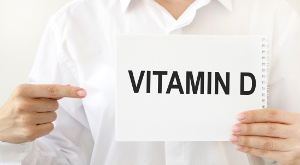 Most cells in the human body need vitamin D. The nutrient also has an important role in preventing symptoms and diseases that may occur after menopause – including osteoporosis, muscle weakness, dry mucosa, mood swings, cardiovascular disease, type 2 diabetes, and cancer. In an article that is published in Frontiers in Physiology, the authors address the widespread vitamin D deficiency that is an overlooked problem in post-menopausal women, and they suggest striving to have optimal vitamin D levels in the blood throughout life.
Most cells in the human body need vitamin D. The nutrient also has an important role in preventing symptoms and diseases that may occur after menopause – including osteoporosis, muscle weakness, dry mucosa, mood swings, cardiovascular disease, type 2 diabetes, and cancer. In an article that is published in Frontiers in Physiology, the authors address the widespread vitamin D deficiency that is an overlooked problem in post-menopausal women, and they suggest striving to have optimal vitamin D levels in the blood throughout life.







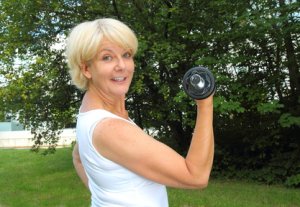 Undernourishment and lack of protein is common among older people. Evidence even suggests that the recommended daily intake of protein is too low, at least as far as seniors is concerned. The problem is most likely a slowdown of the muscle-building enzyme processes. The quality of protein also has something to say just like the amount of physical activity is a factor.
Undernourishment and lack of protein is common among older people. Evidence even suggests that the recommended daily intake of protein is too low, at least as far as seniors is concerned. The problem is most likely a slowdown of the muscle-building enzyme processes. The quality of protein also has something to say just like the amount of physical activity is a factor.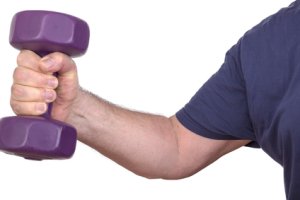 Ageing processes are associated with loss of muscle mass and impaired physical performance, both of which tend to lower quality of life. It is commonly known that
Ageing processes are associated with loss of muscle mass and impaired physical performance, both of which tend to lower quality of life. It is commonly known that 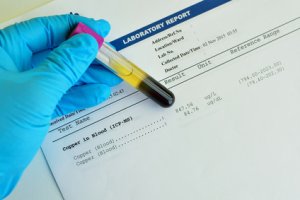 For the first time ever scientists from California have discovered copper's role in the burning of fat. This improves the nutrient's reputation as an essential nutrient.
For the first time ever scientists from California have discovered copper's role in the burning of fat. This improves the nutrient's reputation as an essential nutrient.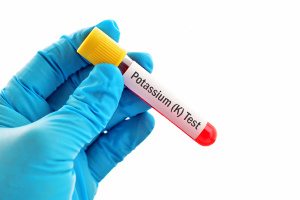 Loss of muscle mass may be a result of a number of factors such as lack of exercise, too little protein, and ageing. Insulin resistance and acid accumulation are also related to loss of muscle mass, and it looks as if increased intake of vegetables with
Loss of muscle mass may be a result of a number of factors such as lack of exercise, too little protein, and ageing. Insulin resistance and acid accumulation are also related to loss of muscle mass, and it looks as if increased intake of vegetables with 
 Girls with high blood levels of
Girls with high blood levels of 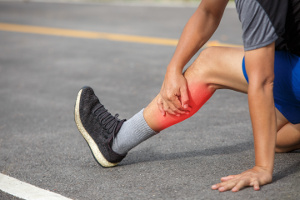
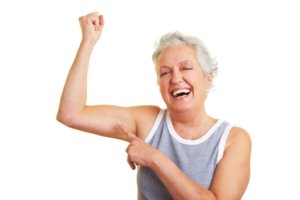 Most people thrive on the idea of staying physically active throughout life, but as we grow older, our skeletal muscle slowly vanishes and our figure changes. This is known as sarcopenia and is one of the main reasons why older people become more fragile and perhaps even disabled. Exercise and diet play a major role, and it seems that the official dietary guidelines are not optimal and should focus more on increased intake of protein as well as lysine, vitamin D, and omega-3 according to a new Canadian study. Earlier research shows that magnesium, selenium, and Q10 are also important for muscle mass and strength.
Most people thrive on the idea of staying physically active throughout life, but as we grow older, our skeletal muscle slowly vanishes and our figure changes. This is known as sarcopenia and is one of the main reasons why older people become more fragile and perhaps even disabled. Exercise and diet play a major role, and it seems that the official dietary guidelines are not optimal and should focus more on increased intake of protein as well as lysine, vitamin D, and omega-3 according to a new Canadian study. Earlier research shows that magnesium, selenium, and Q10 are also important for muscle mass and strength. Age-related loss of muscle mass is a natural process and may result in increased feebleness and even disability. Strength training and diet play a major role, and older people need more protein, especially an essential amino acid called leucine. In addition, supplements of vitamin D, omega-3 fatty acids, and probiotics can have a positive impact on muscle mass and muscle strength, according to a review article that is published in Frontiers in Nutrition.
Age-related loss of muscle mass is a natural process and may result in increased feebleness and even disability. Strength training and diet play a major role, and older people need more protein, especially an essential amino acid called leucine. In addition, supplements of vitamin D, omega-3 fatty acids, and probiotics can have a positive impact on muscle mass and muscle strength, according to a review article that is published in Frontiers in Nutrition.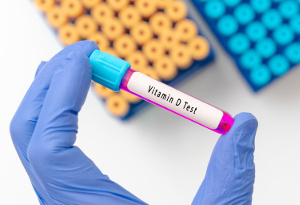 Lack of
Lack of  Older people with a high intake of
Older people with a high intake of  "After about one week of taking the Q10 supplement I could feel a huge difference," says 23-year old Alan Piccini, who has been suffering from extreme fatigue and muscle aches ever since he was a child.
"After about one week of taking the Q10 supplement I could feel a huge difference," says 23-year old Alan Piccini, who has been suffering from extreme fatigue and muscle aches ever since he was a child. “Taking capsules with co-enzyme Q10 has freed me of the severe side effects of my cholesterol lowering medicine,” Mrs Franken explains.
“Taking capsules with co-enzyme Q10 has freed me of the severe side effects of my cholesterol lowering medicine,” Mrs Franken explains.